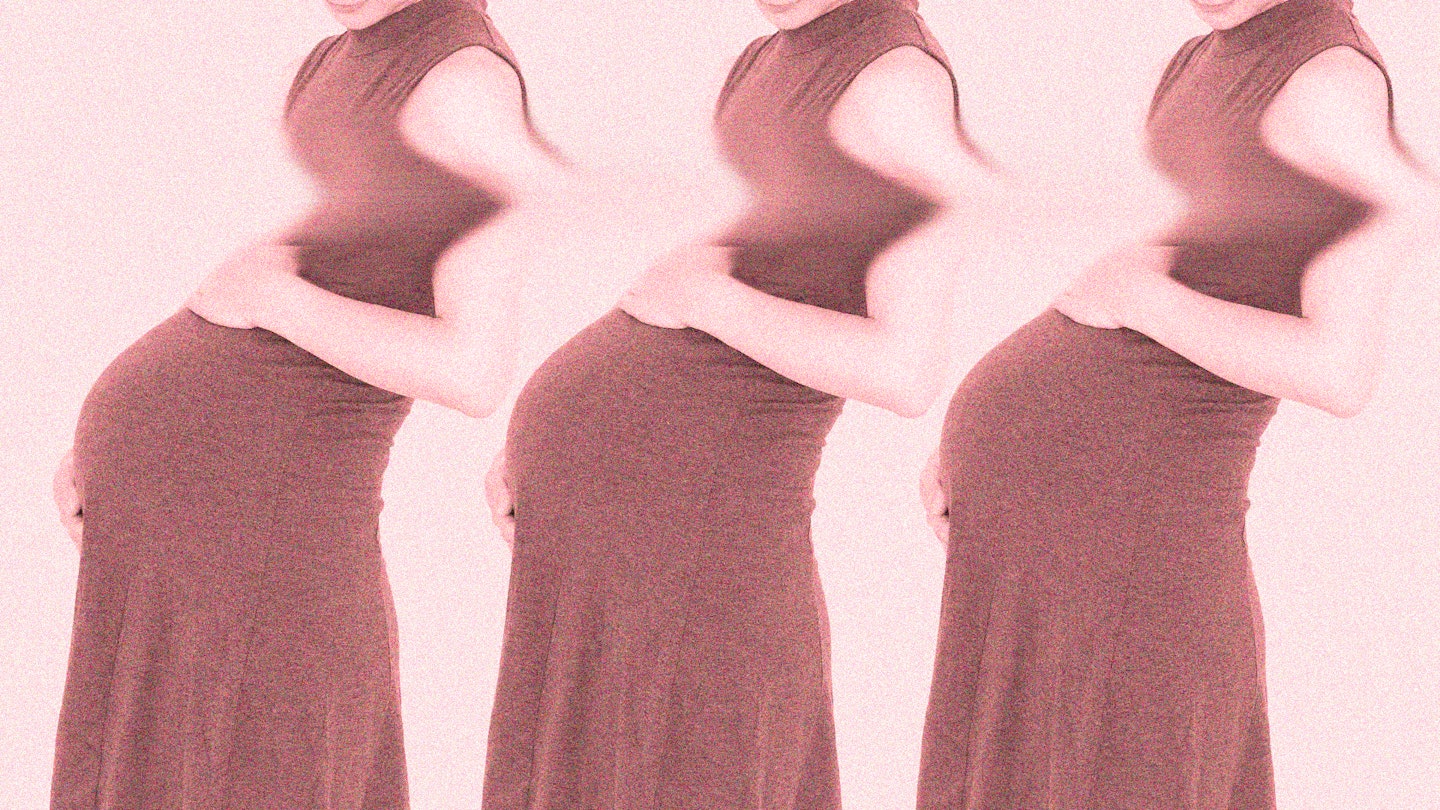Ellie would like to have children, one day. She’s not there yet but it’s certainly not something she has ruled out. However, already, there is a potential problem on her horizon which becomes more visible with every year that passes.
When we talk about pregnant women the words ‘glowing’, ‘blooming’ and ‘beautiful’ are rolled out. There is a certain amount of pressure to look and behave a certain way when you’re pregnant and, for young women suffering with mental health problems, this can be isolating because they don’t see themselves reflected in mainstream conversations about and images of pregnancy.
‘I suffered with depression for about a year’ she explains ‘and then started slipping back into it 2 years later when I started taking the pill. I stay away from anything that affects hormones because I’m predisposed towards depression and anything like the pill seems to tip the scales for me’.
Because of this, Ellie worries about the effects pregnancy might have on her mental health. ‘My mother suffered from AWFUL post-natal depression’ she says ‘coupled with that, I’m basically certain that pregnancy would send me into a depressive tailspin and terrified of getting pregnant because of it’. This doesn’t mean that she has ruled out the prospect of having a family and, as she puts it, she can’t hear her biological clock ‘ticking yet’ but it’s definitely a matter of ‘crossing that bridge’ when she comes to it and taking a view on what might happen.
The preemptive worry that Ellie already has whirring around in her brain is, by all accounts, not without cause. Earlier this month, a report published in the British Journal of Psychiatry by experts at King’s College Londonfound that 1 in 4 pregnant women have mental health problems. This was, they said, ‘more common than previously thought’.
The term ‘post-natal depression’ is widely recognised but the idea that you might suffer with depression during pregnancy (antepartum depression) or, indeed, another mental health problem is far less talked of. Indeed, the KCL research was the first UK-based study of its kind to investigate the prevalence of mental health problems or mental disorders amongst women who are seen by a midwife for pregnancy care. They found that women, when asked what they call ‘gold standard’ questions, experienced a range of different mental illnesses at the same time as pregnancy. 1 in 4 overall had a mental illness; 11% had depression, 15% had anxiety, 2% reported eating disorders and 2% reported obsessive-compulsive disorder.
Louise Howard, Professor of Women’s Mental Health at the Institute of Psychiatry, Psychology and Neuroscience at King’s College London, authored the report. She said that its findings demonstrated the need for pregnant women to be asked the right questions by ‘a non-judgmental and supportive health professional’ both ‘in pregnancy and after birth’.
Support during and after pregnancy is crucial. However, there are young women out there like Ellie who aren’t yet pregnant, and so not in contact with a midwife or medical professional, who have serious concerns about what a pregnancy would mean for them.
Ruchira is 23, she too is worried and is unsure where she could go for advice. ‘I have really anxious thoughts about pregnancy to be honest’ she tells The Debrief. ‘I had an eating disorder when I was 14 and luckily have recovered without relapse with help from the NHS and CAMHS. But at 18, when I went to uni I started to really struggle…I became really really depressed. I struggled to get any medical help and relied on uni counselling. After that, my anxiety became very difficult to manage and I now realise it was panic disorder and social anxiety’. All of this has left Ruchira wondering about whether a pregnancy would be manageable for her.
She explains that her most recent episode of anxiety ‘stemmed from not knowing what was happening to [her] body and a lack of control (also a common trigger for eating disorders’. As a result of this, Ruchira thinks she would ‘really really struggle’ to go through a pregnancy even though she would like to, one day.
**READ MORE: The Debrief Investigates - Hormonal Contraception And Mental Health **
Debrief Mad About The Pill Stats
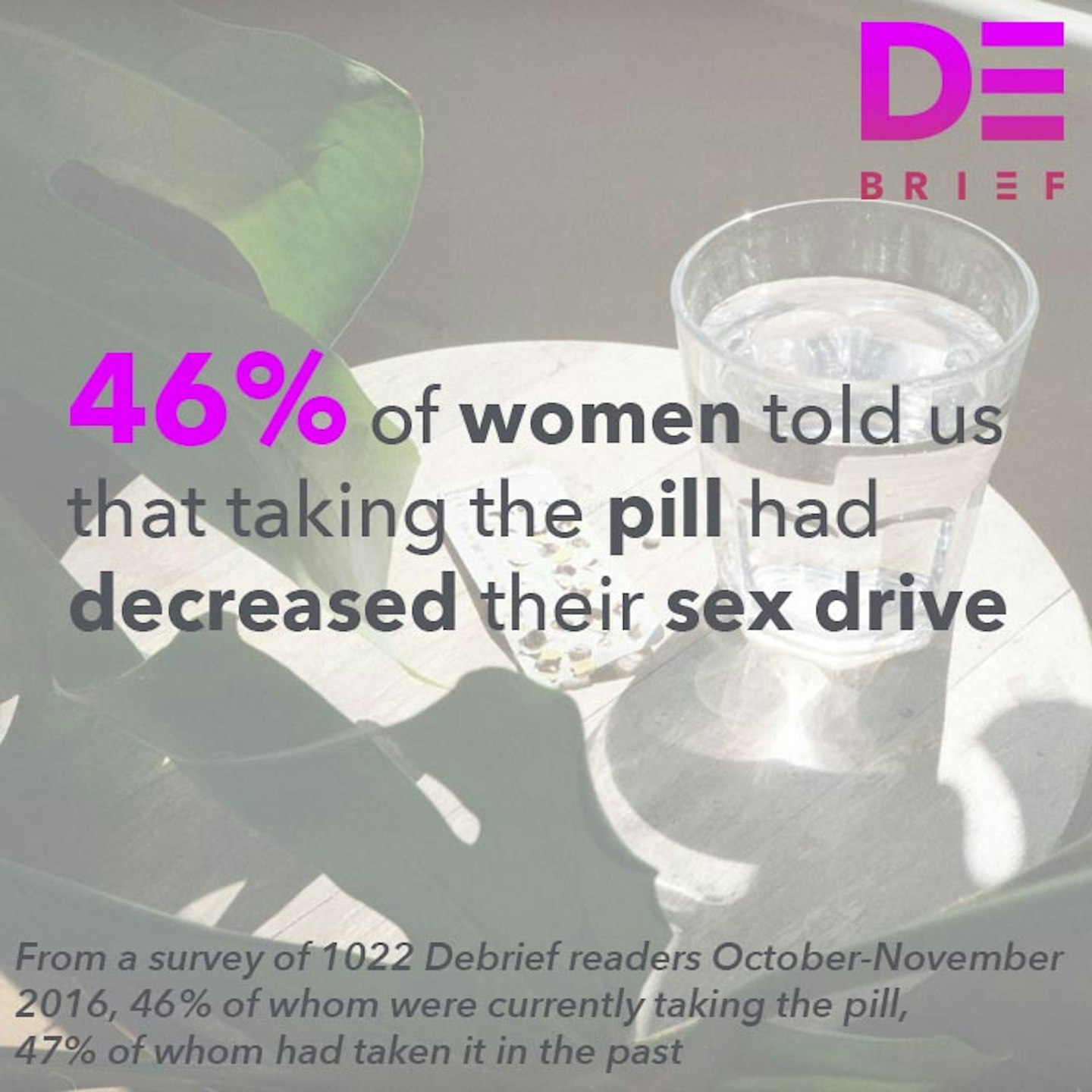 1 of 9
1 of 9Debrief Mad About The Pill Stats
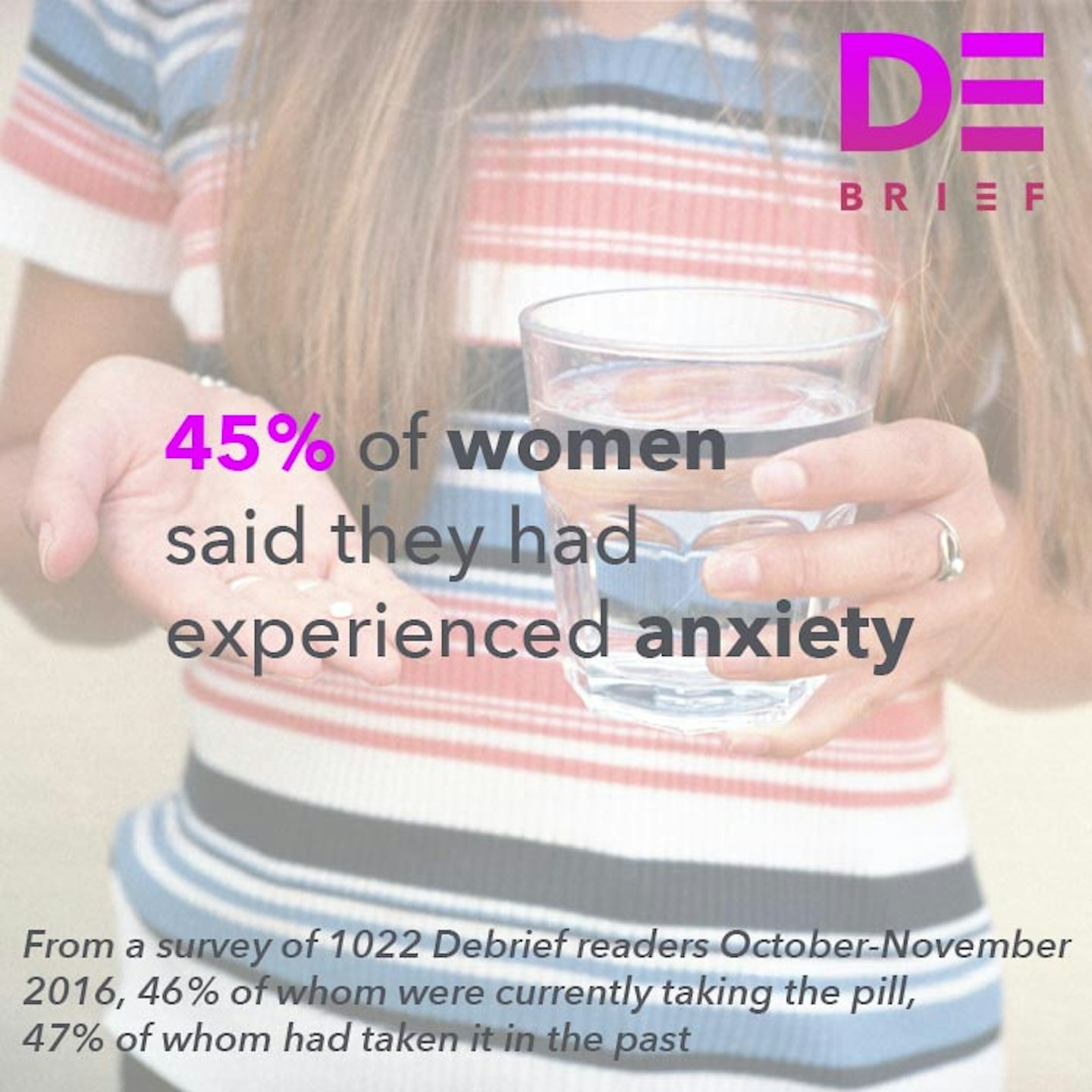 2 of 9
2 of 9Debrief Mad About The Pill Stats
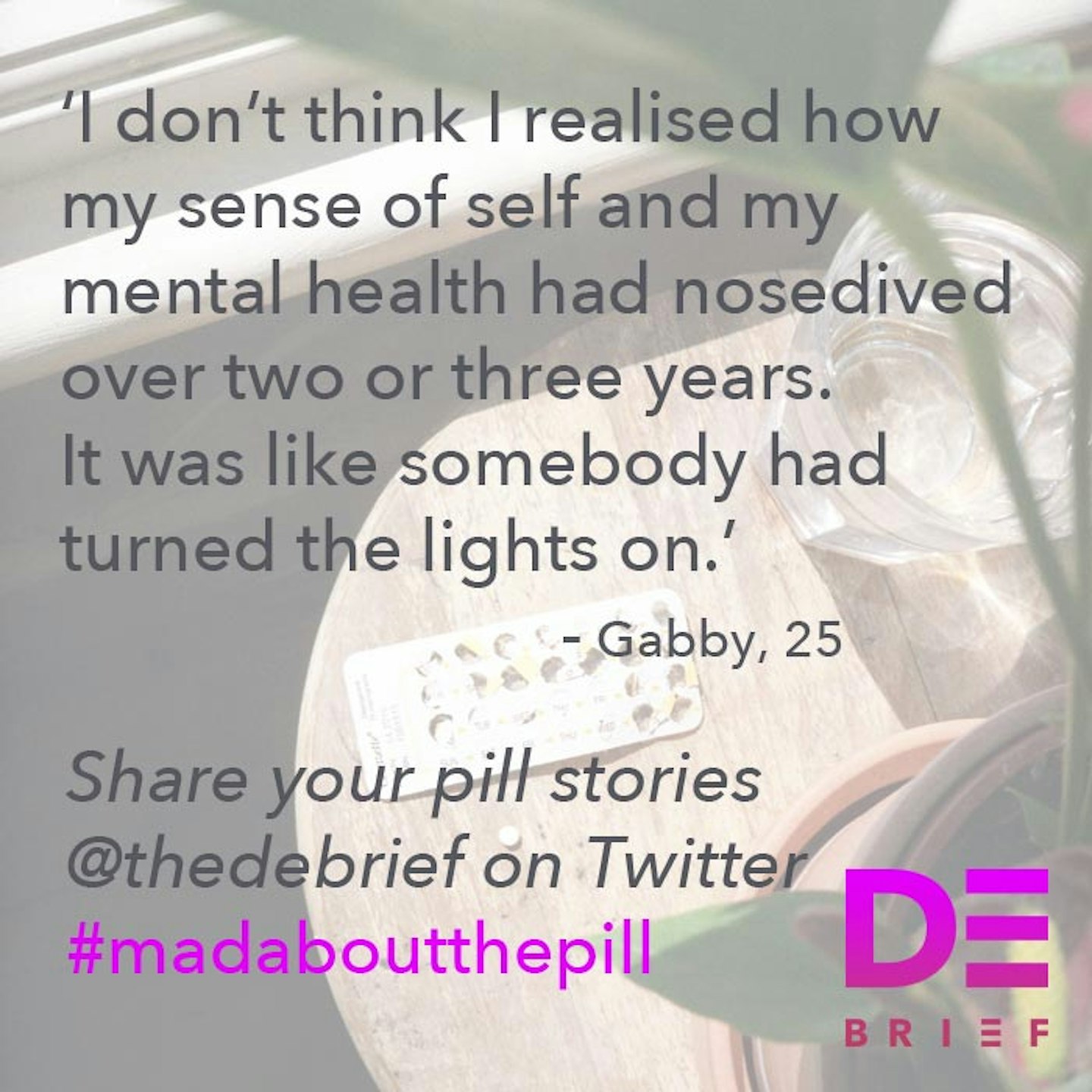 3 of 9
3 of 9Debrief Mad About The Pill Stats
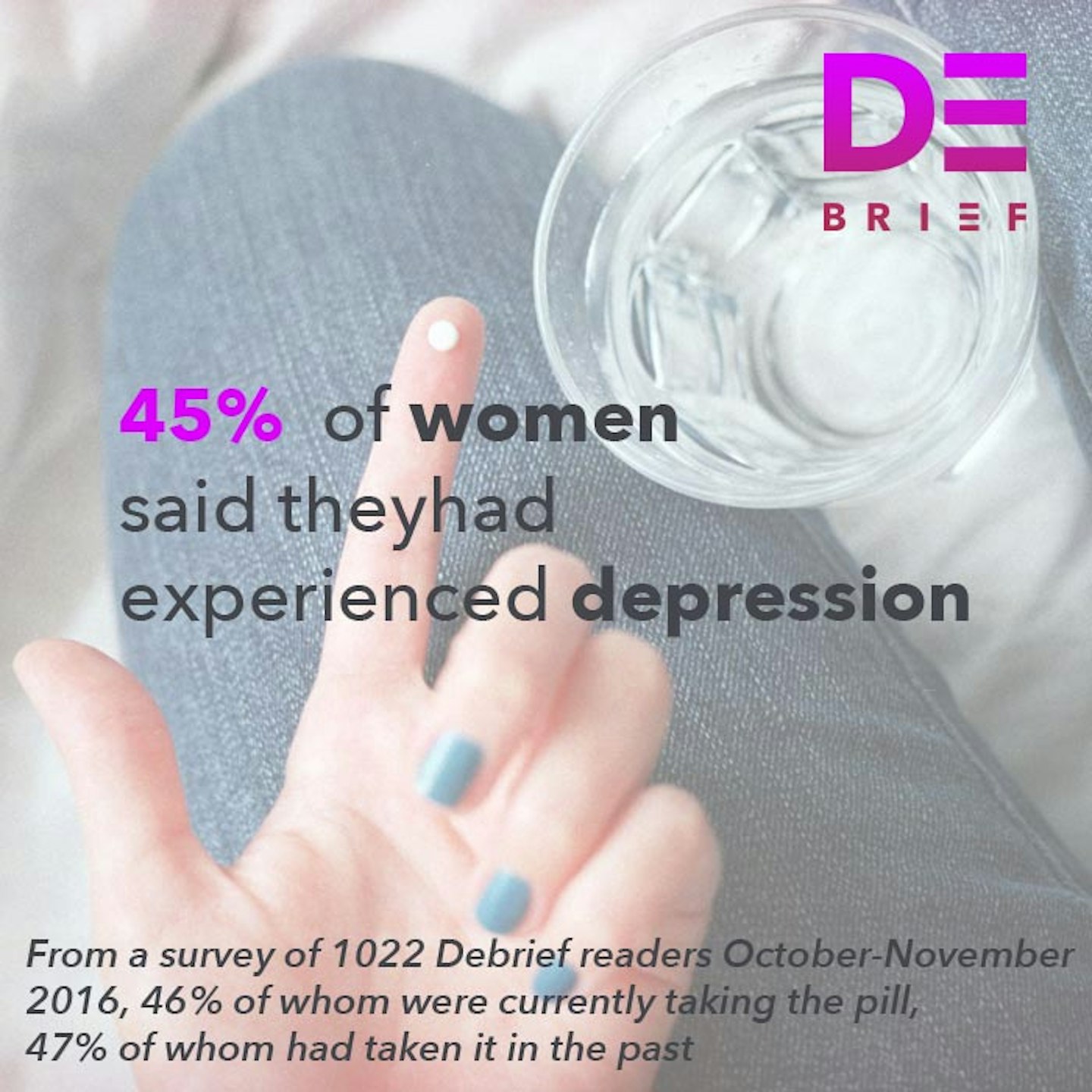 4 of 9
4 of 9Debrief Mad About The Pill Stats
 5 of 9
5 of 9Debrief Mad About The Pill Stats
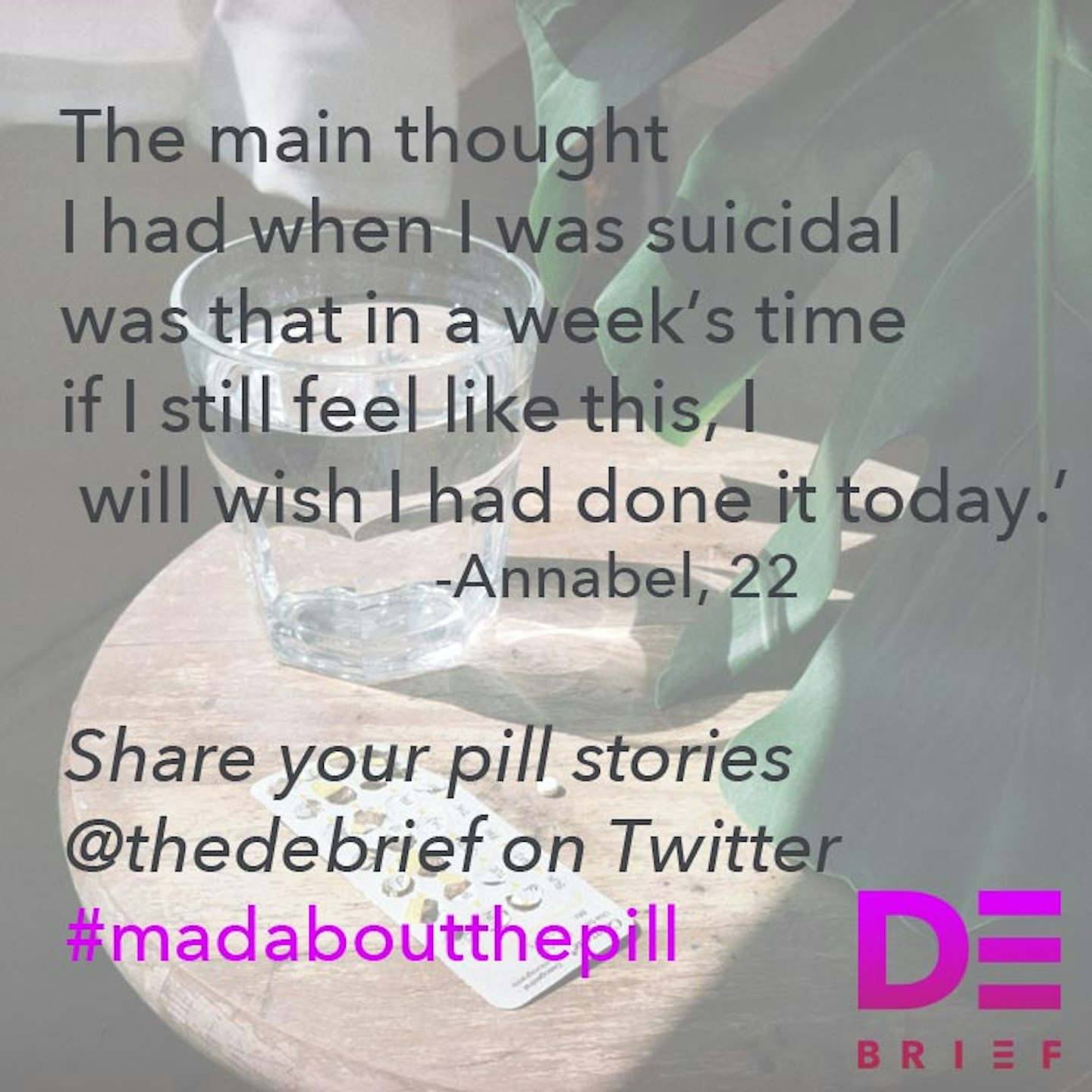 6 of 9
6 of 9Debrief Mad About The Pill Stats
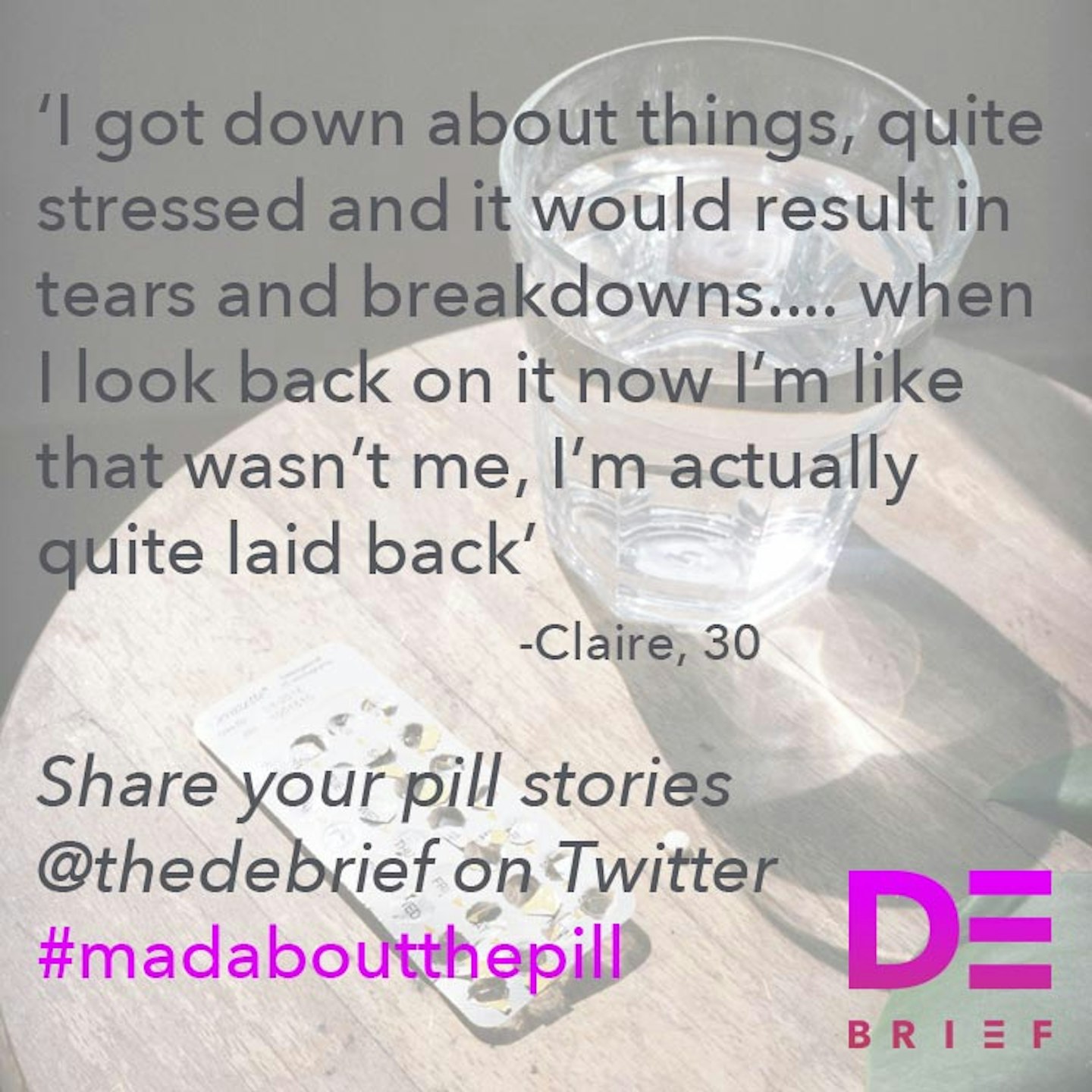 7 of 9
7 of 9Debrief Mad About The Pill Stats
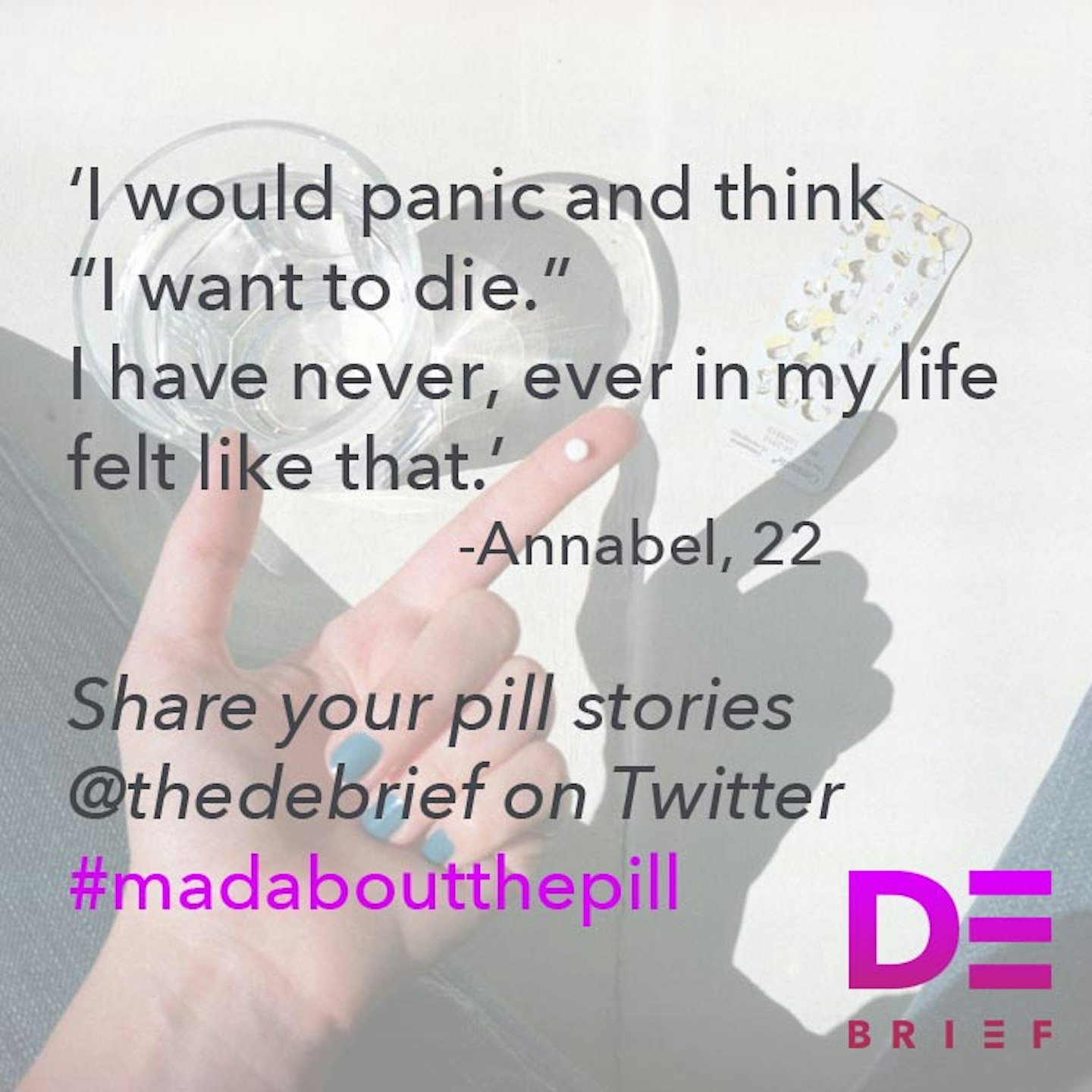 8 of 9
8 of 9Debrief Mad About The Pill Stats
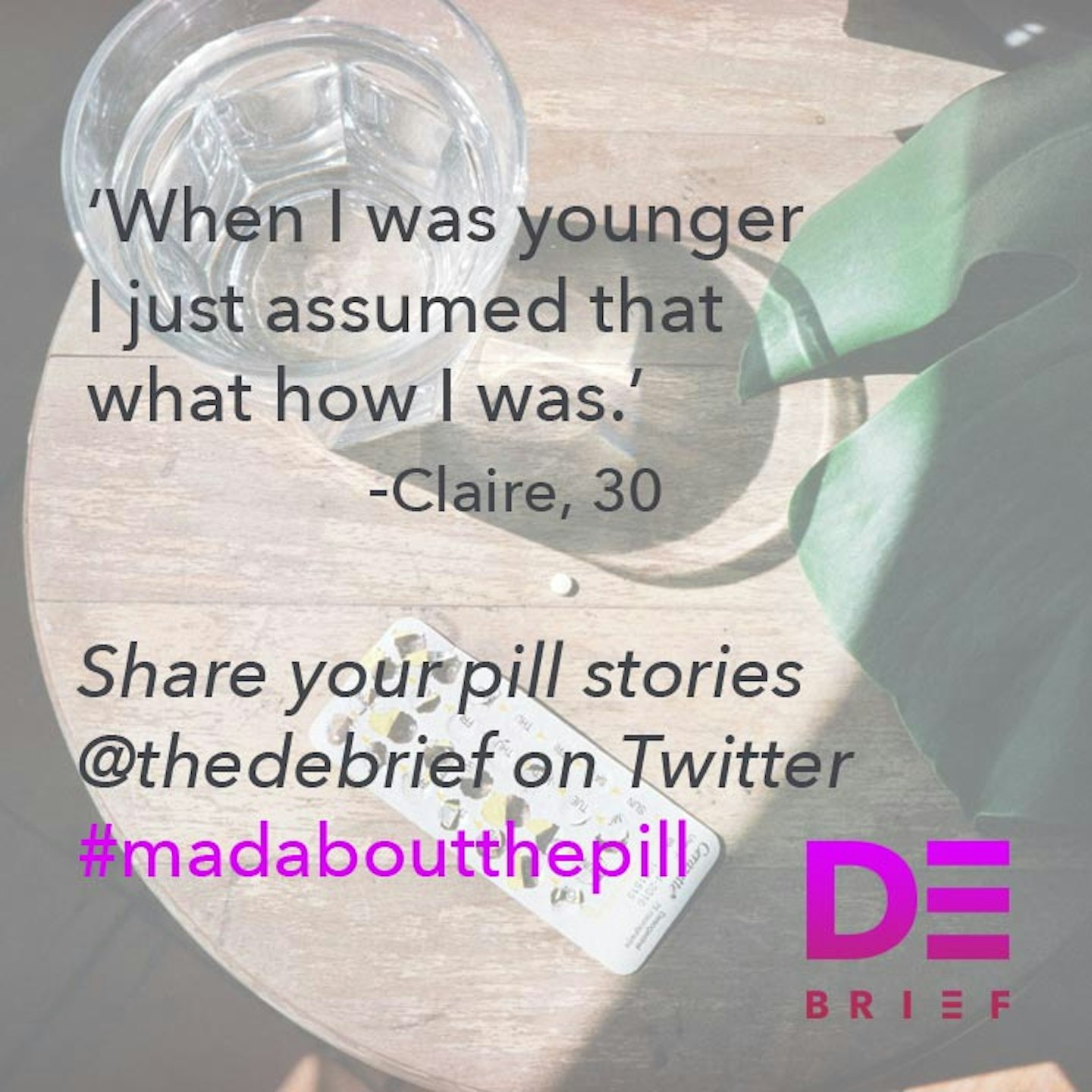 9 of 9
9 of 9Debrief Mad About The Pill Stats
The weight of not knowing how your body and mind would react to pregnancy can loom large for young women. The emotions that are involved are complex: guilt, fear, hope and sadness, Ruchira says she doesn’t think there is enough preemptive support or information available to help navigate all of this particularly if, like her, an eating disorder is involved.
‘One thing that people don’t talk about’ she says ‘is that post eating disorder, there are various things that can “pull you back” - even momentarily - into an unhealthy mindset.’ How would she describe these? ‘If my jeans don’t fit, for example or if I feel bloated on holiday…I’ve notices this in myself and I absolutely hate the power [the eating disorder] still can have.’ Is this why she worries about pregnancy? In part, yes. ‘The thought of being pregnant often terrifies me because I have no idea how to just accept the things that can be so toxic to me, even when I’m in a more positive place. I have considered not having children because I know that if I did decide to go ahead, I know that I would need support to make sure I didn’t go backwards.’
The experience of Lucy, 31, suggests that support isn’t always readily available and that the best practice recommended by Professor Howard doesn’t always happen. Lucy is pregnant and due to give birth imminently. In 2012 she was diagnosed with depression and anxiety disorder. In 2015 she was reassessed by a psychiatrist who said she had ‘elements of bipolar’ which, if she lived in the US, ‘would be diagnosed as Bipolar type 2’. This didn’t affect her decision to have a baby, she has worked hard to manage her mental health and, with the help of a supportive partner, felt able to go through a pregnancy.
However, Lucy says that when she tried to discuss some concerns she was having about her mental health, she was not listened to. ‘I tried to speak to my midwife about pregnancy anxiety but she brushed it off. I thought that was pretty flippant since it states my diagnosis and the fact that I've come off my medication for this pregnancy in my notes’. Lucy adds, ‘I think the NHS is so strained, that unless you press the issue or it's visibly really bad they just miss things. Saying that, I know when I am feeling really low and I know when I need help and I'm not ashamed to ask for it, so I have every confidence that I could now go into my GP and insist on it being taken seriously if I needed to. But, this is from years of dealing with having mental health issues, someone who isn't as sure of their mental health might slip through the gaps’.
One of the people who responded to Professor Howard’s research was Maria Bavetta, the co-founder of Maternal OCD, a support group for mothers and pregnant women who suffer from the condition. She said that she wished she had ‘been given the opportunity to share [her] thoughts [during pregnancy] in a way that would have helped [her] to access specialist maternal mental health services quicker’. As she sees it, it is our duty to both ask pregnant women the right questions and to provide women with ‘a non-judgemental space’ in which they will be listened to. As Lucy says, if that doesn’t happen then women who need support will fall through the net.
Equally, there should also be support for women who decide that they do not want to have children because they have concerns about the emotional and physical impacts of a pregnancy. Tessa, who is in her early 30s, told The Debrief, that she is in the process of trying to be sterilized. ‘I have BPD and anxiety’ she explains ‘and my biggest fear for a long time has been what pregnancy would do to my emotional state. I can’t put myself through it.’
What the experiences of young women, who are not yet [pregnant](https://thedebrief.co.uk/news/real-life/ask-adult-keep-dreams-im-pregnant/ https://thedebrief.co.uk/news/real-life/ask-adult-keep-dreams-im-pregnant/ ) or planning to be any time soon, tell us is that we also need support for women with mental health problems who might one day want to have children. They need to know that they can have honest and open conversations with medical professionals about what a pregnancy might mean for them so that they can make informed choices and have a support system in place before pregnancy.
‘I have never spoken to any doctor or nurse about any of this, ever’ says Ruchira, ‘I really don’t think enough, if anything, is ever shared about the mental burden of pregnancy.’ One of the only places she has found support and solace in an honest discussion about these issues is on Youtube; ‘I watched a Youtuber I love, Samantha Maria, share that as someone who suffered with an ED she struggled with pregnancy and depression’ Ruchira explains ‘it blew my mind because she mirrored everything I'd wanted someone to say happened and wasn't something that never happened to anyone’.
It’s fair to say that our ideas about how pregnant women should feel, look and think are still fairly retrograde – it’s all serenity, gratitude and contentment. Perhaps, if there are more narratives about motherhood and, in particular, ones that allow for it to be portrayed as complex and, sometimes, difficult then the experiences of more women will be represented. We know that one in four young women in the UK report experiencing mental health problems when not pregnant, so it can’t be any surprise that a number of young women out there are contemplating how a pregnancy would affect them as they think about their futures.
Professor Howard’s research has identified the need to support women with mental health problems during pregnancy but it’s clear that we need support for women pre-pregnancy too. No woman who wants to be a mother should fear that she can’t be because she is worried that she won’t be supported when it comes to her mental health and, equally, no woman who decides not to have children because she fears for her mental health should be judged for doing so.
*some names have been changed
Follow Vicky on Twitter @Victoria_Spratt
This article originally appeared on The Debrief.
